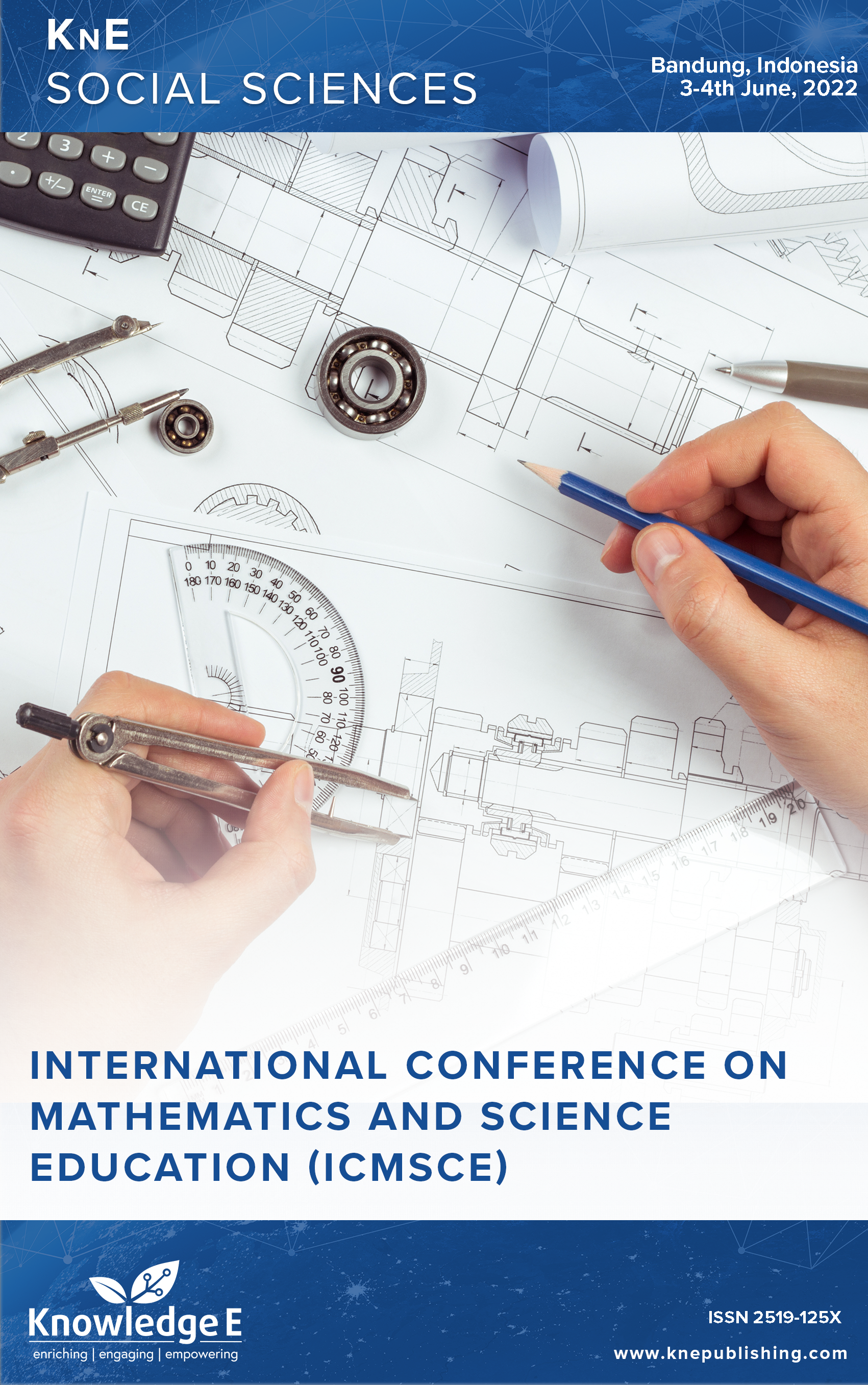The Impact of Mathematical Reasoning and Critical Thinking Skills on Mathematical Literacy Skills
DOI:
https://doi.org/10.18502/kss.v9i13.15957Abstract
For learning mathematics, mathematical skills are needed, some of which are mathematical reasoning skills, mathematical critical thinking skill, and mathematical literacy skills. This research aims to obtain information regarding the impact of mathematical reasoning and critical thinking skills on mathematical literacy skills. This research used a quantitative approach using an associative method with a correlational technique. The sample of this research was comprised 51 students who took integral calculus course in the Department of Mathematics and Mathematics Education, Faculty of Mathematics and Science in Universitas Negeri Jakarta, which were collected randomly using simple random sampling. The statistical analysis used in this research was multiple regression analysis. The results of this research showed that: 1) There was a positive impact of mathematical reasoning on mathematical literacy. 2) There was a positive impact of mathematical critical thinking skill on mathematical literacy. 3) There was an impact of both mathematical reasoning skill and mathematical critical thinking skill together on mathematical literacy. Further research is needed related to the impact of mathematical reasoning and critical thinking skills on mathematical literacy skills reviewed from the student’s initial mathematical skill.
Keywords: critical thinking skills, mathematical literacy skills, mathematical reasoning
References
Permendikbud, “Standar kompetensi lulusan no. 20 tahun 2016,” Kemendikbud, vol. 3, no. 2, pp. 13–22, 2016.
C. E. Allen et al., “National council of teachers of mathematics,” Arith. Teach., vol. 29, no. 5, p. 59, 2020, doi: 10.5951/at.29.5.0059. DOI: https://doi.org/10.5951/AT.29.5.0059
T. Herman, “Pembelajaran berbasis masalah untuk meningkatkan kemampuan komunikasi matematik siswa sekolah menengah pertama,” EDUCATIONIST, vol. 1, no. 1, pp. 47–56, 2007, doi: 10.31980/mosharafa.v1i1.168. DOI: https://doi.org/10.31980/mosharafa.v1i1.168
A. H. Aldahmash and N. M. Alamri, “An analysis of the inclusion of mathematical discourse components in arabic mathematical textbooks: the case of Saudi Arabia,” Front. Psychol., vol. 11, no. November, pp. 1–8, 2020, doi: 10.3389/fpsyg.2020.534803. DOI: https://doi.org/10.3389/fpsyg.2020.534803
R. D. Jannah, R. I. I. Putri, and Zulkardi, “Soft tennis and volleyball contexts in asian games for pisa-like mathematics problems,” J. Math. Educ., vol. 10, no. 1, pp. 157–169, 2019, doi: 10.22342/jme.10.1.5248.157-170. DOI: https://doi.org/10.22342/jme.10.1.5248.157-170
D. R. Kusumawardani, Wardono, and Kartono, “Pentingnya penalaran matematika dalam meningkatkan kemampuan literasi matematika,” Prism. Pros. Semin. Nas. Mat., vol. 1, no. 1, pp. 588–595, 2018.
R. Pramesty, “Pengaruh model discovery learning terhadap kemampuan berpikir kritis matematis siswa (studi pada siswa kelas viii smp negeri 2 Sumberejo semester genap tahun pelajaran 2021/2022).” 2022.
E. Mateus-Nieves and H. R. Devia Díaz, “Development of mathematical thinking skill from the formulation and resolution of verbal arithmetic problems,” Acta Sci., vol. 23, no. 1, pp. 30–52, 2021, doi: 10.17648/acta.scientiae.5845. DOI: https://doi.org/10.17648/acta.scientiae.5845
E. Salsabila, W. Rahayu, S. A. Kharis, and A. Putri, “Analysis of mathematical literacy on students’ metacognition in conic section material,” J. Phys. Conf. Ser., vol. 1417, no. 1, 2019, doi: 10.1088/1742-6596/1417/1/012057. DOI: https://doi.org/10.1088/1742-6596/1417/1/012057
Sukmawati, “Hubungan kemampuan literasi matematika dengan berpikir kritis mahasiswa,” 2018.

